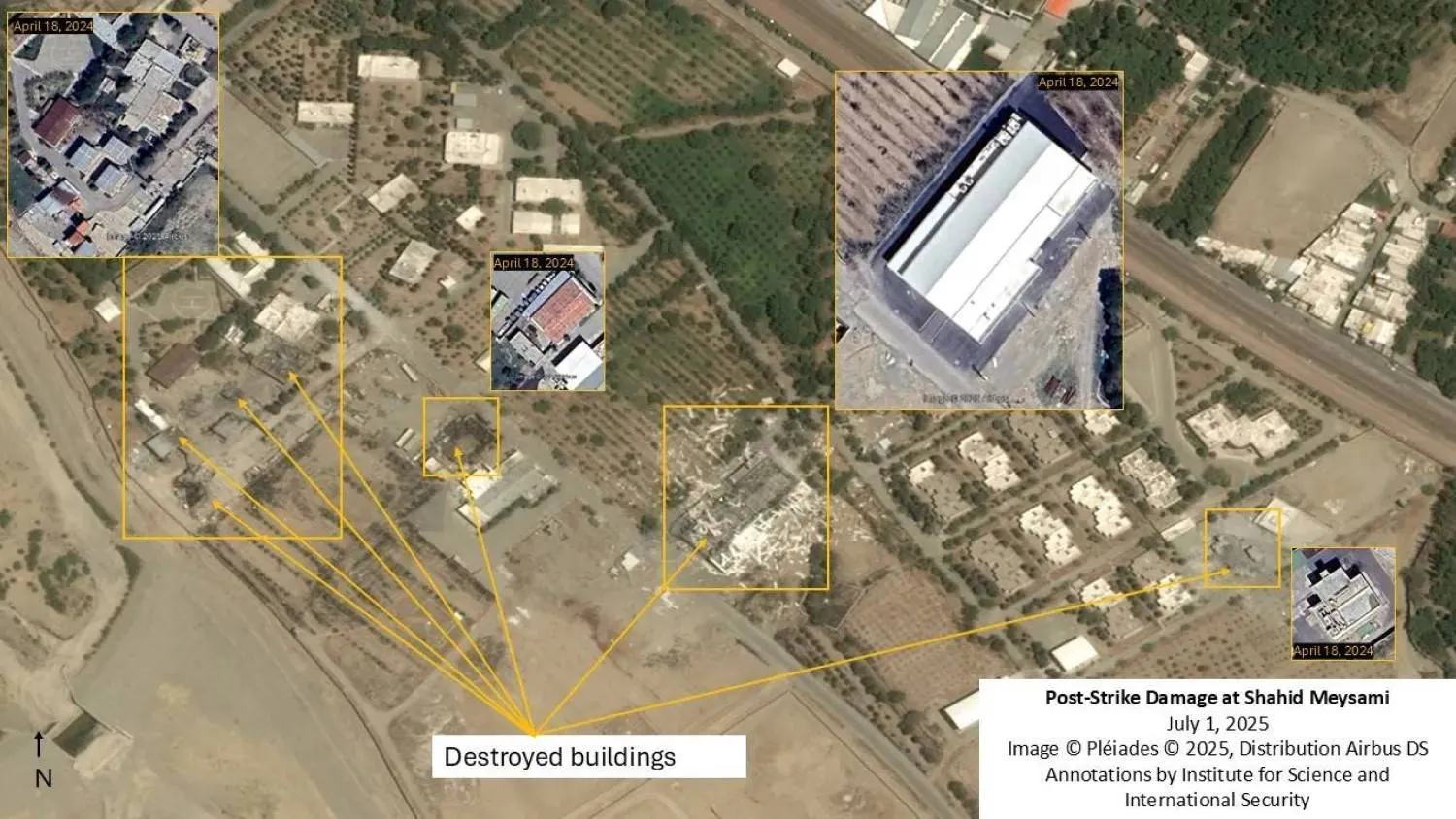Almost two weeks after Israel and Iran agreed to a complete ceasefire, satellite images showing the aftermath of Israeli strikes on military and nuclear facilities in various parts of Iran, indicate the presence of nuclear weapons capabilities.
The Institute for Science, a think tank focused on nuclear nonproliferation, posted on its X account that the satellite imagery taken by Airbus showed multiple buildings at Iran’s Shahid Meisami research center that were destroyed during Israel’s bombing campaign between the 15th and 16th of June.
The building included a large hangar-type building constructed in 2021-2024, which reportedly housed “plastic explosives and advanced materials used in nuclear detonation testing,” it said.
The Institute also said that images taken during the construction of the hangar-type building reveal that it contains a concrete pit in the building floor, measuring 7.5 meters x 4.5 meters, which could have a role in casting plastic explosives.
“It is uncertain but possible that the nuclear weapons capabilities at this facility extended beyond producing and storing plastic explosives and other components for multi-point initiators (shock wave generators) in implosion systems,” it wrote.
The Institute added that the facility may have also been involved in developing or producing hemispherical implosion systems, based on information about the general targets destroyed by Israel and the number and types of buildings destroyed at the site.
Commenting on the satellite images, President and Founder of the Institute for Science and International Security, David Albright said, “This short study represents damage done to Iran’s infrastructure to build the nuclear weapon itself.”
In a post on X, he wrote, “We are finding more and more such sites destroyed or damaged. Israel even found where Iran kept many classified nuclear weapon documents and destroyed them.”









